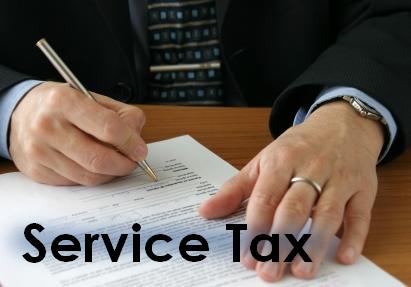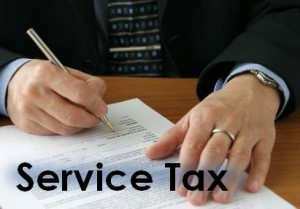This article is written by Abhilash Agarwal, a student of NLU-Jodhpur
Service tax in India began with the taxation of three services in 1994 based on the recommendations of the Dr. Raja Chelliah Committee on tax reform. From a very modest collection of Rs.407 Crore to a contribution of Rs.97, 444 Crore during 2011-12, it was still felt that the potential of service tax remained huge and untapped. To capture the same, Budget 2012 ushered in a new system of taxation of services; popularly known as Negative List, whereby all services, except those specified in the negative list[contained in Section 66D of the Finance Act,1994(“the Act”)], will be subject to taxation. This list comprises of motley of services ranging from services of the RBI to even mortuary services. Legal consultancy, however, does not figure in this list.
Up until 2012, lawyers were not asked to pay service tax for their activities. Back in 2011, when the scope of service tax was extended to individual lawyers, it resulted in a lot of litigation and the ensuing debate ended with the Delhi High Court granting a stay on operation of such provisions. The government, already tentative about bringing lawyers into the service tax net, in a manner that can at best be described as appeasing, sidestepped and brought the service rendered by lawyers under the reverse charge mechanism.[1] Under and by virtue of the amended Service Tax Rules, the recipient of legal services rendered by an arbitral tribunal, or an individual advocate, or a firm of advocates by way of legal services, if such recipient is a business entity located in the taxable territory, shall be liable for paying service tax to the Government. Therefore, the incidence of service tax payment for availing legal services had been shifted from the service provider upon the recipient, provided that the recipient is a business entity with a turnover exceeding Rs.10 lakhs in the preceding financial year.
Cases where lawyers can be exempted from paying service tax
The government vide its mega exemption notification no. 25/2012 exempted the legal service[2] by an individual advocate[3] or a partnership firm of advocates from the whole of the service tax that can be levied thereon under section 66B the Act, when rendered to-
i) an advocate or partnership firm of advocates providing legal services(i.e same class of persons);
ii) any person other than a business entity; or
iii) a business entity with a turnover upto Rs.10 Lakhs in the preceding financial year.
Thus, the individual advocates or a partnership firm of advocates providing legal service are not liable to pay service tax under any circumstance and in case of service provided to the business entities having turnover above Rs.10 Lakhs in the preceding financial year, such business entities are only liable to pay tax.
Also, service provided by an arbitral tribunal is also exempt under the mega exemption. An arbitral comprising more than one arbitrator will constitute an entity by itself. Thus, services of individual arbitrator when represented on such an arbitral tribunal will be exempted from imposition of service tax. Also exempted are services provided by an arbitral tribunal to-
(i) any person other than a business entity or
(ii) a business entity with a turnover up to Rs.10 Lakhs in the preceding financial year
Cases where lawyers cannot be exempted from paying service tax
For legal services provided or agreed to be provided to business entities located outside India where place of provision of service is within the taxable territory, the advocate or firm of advocates is liable to pay tax. Such services include services relating to mergers and acquisitions, due diligence etc.
Also, in respect of services provided to business entities, with a turnover exceeding Rs. 10 Lakhs in the preceding financial year, tax is required to be paid on reverse charge by the business entities.
In a way, it is quite convenient for lawyers who do not have to maintain any service tax record for depositing it since the entire liability is of the client to deposit it. But it also might increase legal proceedings on this aspect since the client might default in payment of service tax. To ensure such thing does not happen, a lawyer, who is not covered under the exemption, should refer about this for clarity to the clients in the invoice given for the service. Also, the client needs to register themselves for the service tax as per the provisions of Finance Act,1994(the procedure can be referred to here)
Essentials that one needs to know about Service Tax
- Registration
Registration becomes compulsory for a service provider under the law as the turnover cross the threshold limit of Rs.9 Lakhs. A service provider is also required to charge service tax compulsorily once the turnover crosses the threshold limit of Rs.10 Lakhs.
- Returns
Service tax returns are due half-yearly shown whereby for the period of April to September, the last date to file returns is 25th October and for the period of October to March, it is 25th April.
- Rate
The present rate is 12.36%.
- Point of Taxation or Chargeability
Chargeability arises when services are rendered, while the rate is determined at the time of payment by service receiver. So, if the service is rendered when the service tax rate is X% and at the time of payment it is Y%, the prevailing rate will be Y%. Another case may arise when services are rendered; the service was under exempt category. However, when the receiver makes payment, the rate is Y%. In that case, since chargeability did not arise at the time of rendering services but is a post-facto charge, no service charge rate will apply on the service since it was exempt at the time of commission.
- Time of payment
Individual, Sole Proprietorship or Partnerships have to make quarterly payments and all others have to make payments monthly.
- Valuation Method
Service Tax can be levied on the value of services rendered. Such value will be calculated under the following situations in the manner prescribed below:
- Where consideration for service is paid in money- Gross amount charged by the service provider for such services
- Where consideration for service is partly made in money-Estimated monetary value of services under prevalent market conditions
- Where consideration for service is unascertainable-Service Tax (Determination of Value) Rules, 2006.
[1] Reverse change is a system where the responsibility for payment of service tax is fixed on the service receiver, as opposed to the general principle of the service provider charging the service receiver through an invoice for the service plus the service tax, and remitting the same to Government. So, the responsibility of paying the service tax ultimately falls on the client, and the lawyer’s inclusion in the scheme of events is as good as non-existent.
[2] Legal service means any service provided in relation to advice, consultancy or assistance in any branch of law, in any manner and includes representational services before any court, tribunal or authority.
[3] Advocate has the meaning assigned to it in clause (a) of sub-section (1) of section 2 of the Advocates
Act, 1961 (25 of 1961); “advocate means an advocate entered in any roll under the provisions of this Act.”
 Serato DJ Crack 2025Serato DJ PRO Crack
Serato DJ Crack 2025Serato DJ PRO Crack











 Allow notifications
Allow notifications



What are the rules for selling a non-excisable input chemical “as such”, by an exciseable goods manufacturer. Should excise be charged or not on this chemical ?